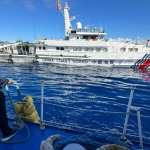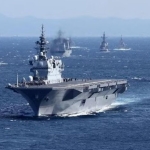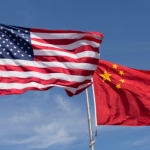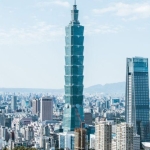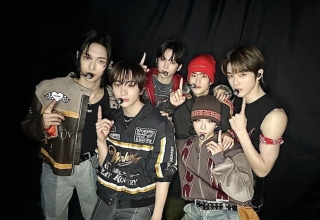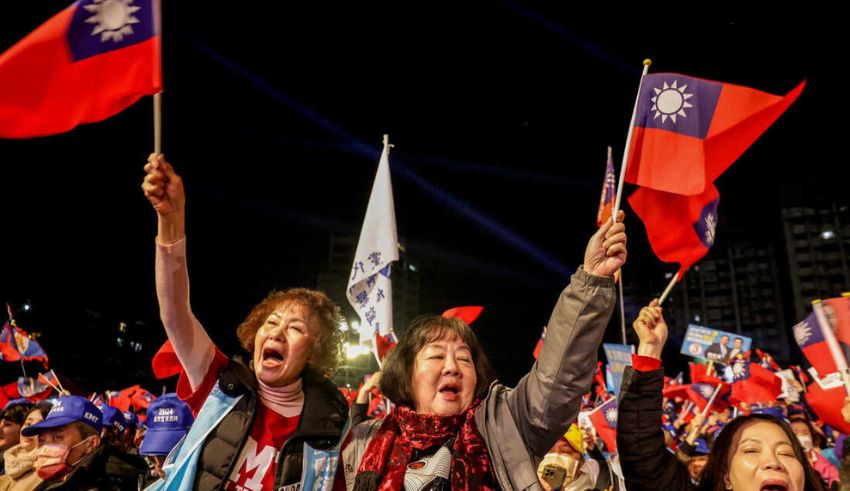
Last updated on January 13th, 2024 at 03:03 pm
Taiwan’s presidential and parliamentary elections, scheduled for January 13, 2024, are taking place amid heightened tensions with China, which claims the self-governing island as part of its territory and has not ruled out the use of force to achieve unification.
Beijing has increased its military, diplomatic, and economic pressure on Taipei, while also conducting a campaign of influence and interference to sway the voters. The United States, Taiwan’s most important security partner and arms supplier, has also played a prominent role in the elections, by expressing support for Taiwan’s democracy and strengthening bilateral ties.
The Candidates
The three main candidates running for president have different views on how to deal with China and maintain cross-strait stability. They are:
- Lai Ching-te, the incumbent president from the ruling Democratic Progressive Party (DPP), who is seeking a second term. He advocates a pragmatic and balanced approach to cross-strait relations, based on defending Taiwan’s sovereignty and dignity, while also maintaining dialogue and cooperation with China on areas of mutual interest. He rejects Beijing’s “one country, two systems” formula and its insistence on the “1992 consensus”, a vague understanding that there is only one China, but with different interpretations. He supports strengthening Taiwan’s defense capabilities and its relations with the US and other like-minded countries.
- Hou Yu-ih, the former mayor of New Taipei City from the opposition Kuomintang (KMT) party, who is challenging Lai for the presidency. He favors a more conciliatory and friendly approach to cross-strait relations, based on acknowledging the “1992 consensus” and restoring the official dialogue and exchanges that were suspended after Lai took office in 2016. He opposes Taiwan’s independence and any unilateral change to the status quo. He advocates expanding Taiwan’s economic and cultural ties with China and the region, while also maintaining a stable and constructive relationship with the US.
- Ko Wen-je, the founder and chairman of the Taiwan People’s Party (TPP), who is running as a third-party candidate. He is a former mayor of Taipei and a popular political figure, known for his outspoken and unconventional style. He takes a more ambiguous and flexible stance on cross-strait relations, saying that he supports the status quo and opposes war, but also that he is open to dialogue and cooperation with China on the basis of mutual respect and dignity. He does not endorse or reject the “1992 consensus” or the “one country, two systems” formula, saying that they are not the core issues. He emphasizes the need for Taiwan to enhance its soft power and innovation, and to diversify its international relations.
Keep Reading
The Implications
The outcome of the elections will have significant implications for the future of cross-strait relations and regional security. A victory for Lai would likely mean a continuation of the current stalemate and confrontation with China, as well as a further deepening of Taiwan’s ties with the US and other democracies.
A victory for Hou would likely mean a revival of the cross-strait dialogue and exchanges that were in place under the previous KMT administration, as well as a more cautious and balanced approach to Taiwan’s relations with the US and China.
A victory for Ko would likely mean a more unpredictable and flexible approach to cross-strait relations, depending on the changing circumstances and opportunities. In any case, the next president of Taiwan will face the daunting challenge of managing the complex and dynamic relationship with China, while also safeguarding Taiwan’s democracy and security.
